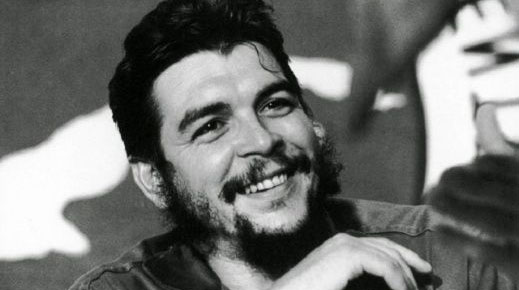
In the memorable evening of the now distant October 1967, Commander-in-Chief Fidel Castro predicted the failure of the enemies to erase the footprint and legacy of Ernesto Che Guevara when he said:
"And in the face of history, men who act like him, men who do everything and give everything for the cause of the humble, every day that passes they grow bigger, every day that passes they go deeper into the hearts of the people..."
The Cuban Argentinean is remembered this June 14, the 95th anniversary of his birth, and in everyday life for his extraordinary human and revolutionary dimension, and although he seems to be more like a legend than the real life of an individual, he was undoubtedly a hero of flesh and blood who transcended through his actions.
As a knight-errant he traveled by motorcycle, together with his friend Alberto Granados, through the countries of Latin America, a journey that strengthened his humanist and revolutionary ideals.
Since he was 10 years old, he had identified himself with Miguel de Cervantes' masterpiece, The Ingenious Hidalgo Don Quixote de la Mancha, to whom he was united by his kindness and selflessness to help those in need.
About that stage of his life, he said after years passed, on August 19, 1960 in Havana, at the beginning of a course at the Ministry of Public Health:
"After I received my degree, due to special circumstances and perhaps also because of my character, I began to travel through America and I got to know the whole of it [....]. And because of the conditions in which I traveled, first as a student and then as a doctor, I began to come into close contact with misery, with hunger, with disease, with the inability to cure a child for lack of means, with the brutalization caused by hunger and continuous punishment, to the point that for a parent losing a child is an unimportant accident, as often happens in the stricken classes of our American homeland; And I began to see that there were things that, at that moment, seemed to me almost as important as being a famous researcher or making a substantial contribution to medical science; and that was to help those people.
During that tour, the doctor Guevara de la Serna and his friend Granados, were with leprosy patients in leprosarium in Lima and Sao Paulo, whom he treated with consideration and expressed the desire to put his knowledge at the service of the sick, no matter how contagious that ailment was.
It is said that during his pilgrimage through Latin America, as well as during the insurrectional struggle in the Sierra Maestra, in his work as a guerrilla and at the same time as a doctor in the Congo, or in the Bolivian jungles, he reaffirmed his desire to help the most needy and defended the rights of the poor, the blacks and the Indians.
His ethical conception highlighted some issues such as sensitivity to problems, modesty, simplicity, solidarity, nonconformity to wrongdoing, intransigence against injustice and formalism.
On the 95th anniversary of the birth of Comandante Ernesto Che Guevara we remember how he combined his revolutionary passion with his love for his family, his children, his appreciation for his comrades in struggle, his caustic humor, his way of telling the truth, his loyalty to the Revolution.
Sidebar

 Agencia Cubana de Noticias
Líder en información nacional
Agencia Cubana de Noticias
Líder en información nacional








Nos reservamos el derecho de no publicar los comentario que incumplan con las normas de este sitio